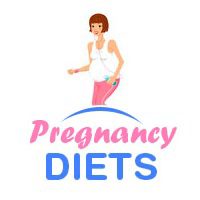Breastfeeding your baby is one of the most important things you can do to provide the best nutritional foundation for his future. It has been proven that breastfeeding will make your baby smarter and healthier and it gives him a stronger immune system to fight illnesses.
But for breastfeeding to provide your child with the best possible start in life, you need to be aware of your own nutritional needs while you are doing it. It is essential that you take in the proper nourishment in order to maximize the impact on your baby and take care of yourself as well.
Breastfeeding Diet Restrictions
As was the case with your pregnancy diet, you need to be extremely cautious about what you are taking into your body when you are breastfeeding, because it will pass through to your baby through your milk.
You must be careful to avoid alcohol, tobacco and drugs, and only take medication if you’ve checked with your pediatrician first. If you must have a drink, make sure that it is after a feeding, and if you must smoke, make sure that you’ve let at least an hour pass between the time that you smoke and the time that you feed your baby in order to let the nicotine out of your system. You should also be vigilant about.
Breastfeeding Diet List
When you are breastfeeding you burn an extra 600 calories per day. Many people think that breastfeeding is a good method for losing baby weight, but you must be cautious; cheating yourself of nutrients in the name of weight loss can weaken you.
Make sure that you are getting all of the vitamins and minerals that you need, because your proper nutrition is what determines the amount of milk your body will produce for your baby.
Your baby needs between 23 and 27 ounces of breast milk every day, and one of the most important things that you can do is make sure you are getting enough water.
Try to drink a glass of water each time you nurse, in addition to the water that you are drinking already, and increase your caloric intake to at least 2,500 calories per day –
Weight gain at that level is not a concern, but you should avoid sweets and stick to healthy foods instead. Make sure you’re eating enough protein –
Breastfeeding Diet Menu
Another thing that you can carry over from your pregnancy diet to your breastfeeding diet is attention to consuming dairy and eating small snacks throughout the day.
A good way of making sure you’re eating enough dairy and fresh fruit and vegetables is to make them your snack food –
It’s a good idea to keep taking your prenatal vitamins, as they ensure that both you and your baby are getting the right amounts of folic acid and zinc. There are certain foods that you might want to avoid eating while you are breastfeeding, as they may make your baby fussy or colicky; these include garlic, onions and cabbage.
Every baby is different though, and you may find that these have no impact on the baby while other foods may. If you find that your infant is fussy after nursing, think back to the meal you had immediately before nursing him and you may be able to figure out what is irritating him.
